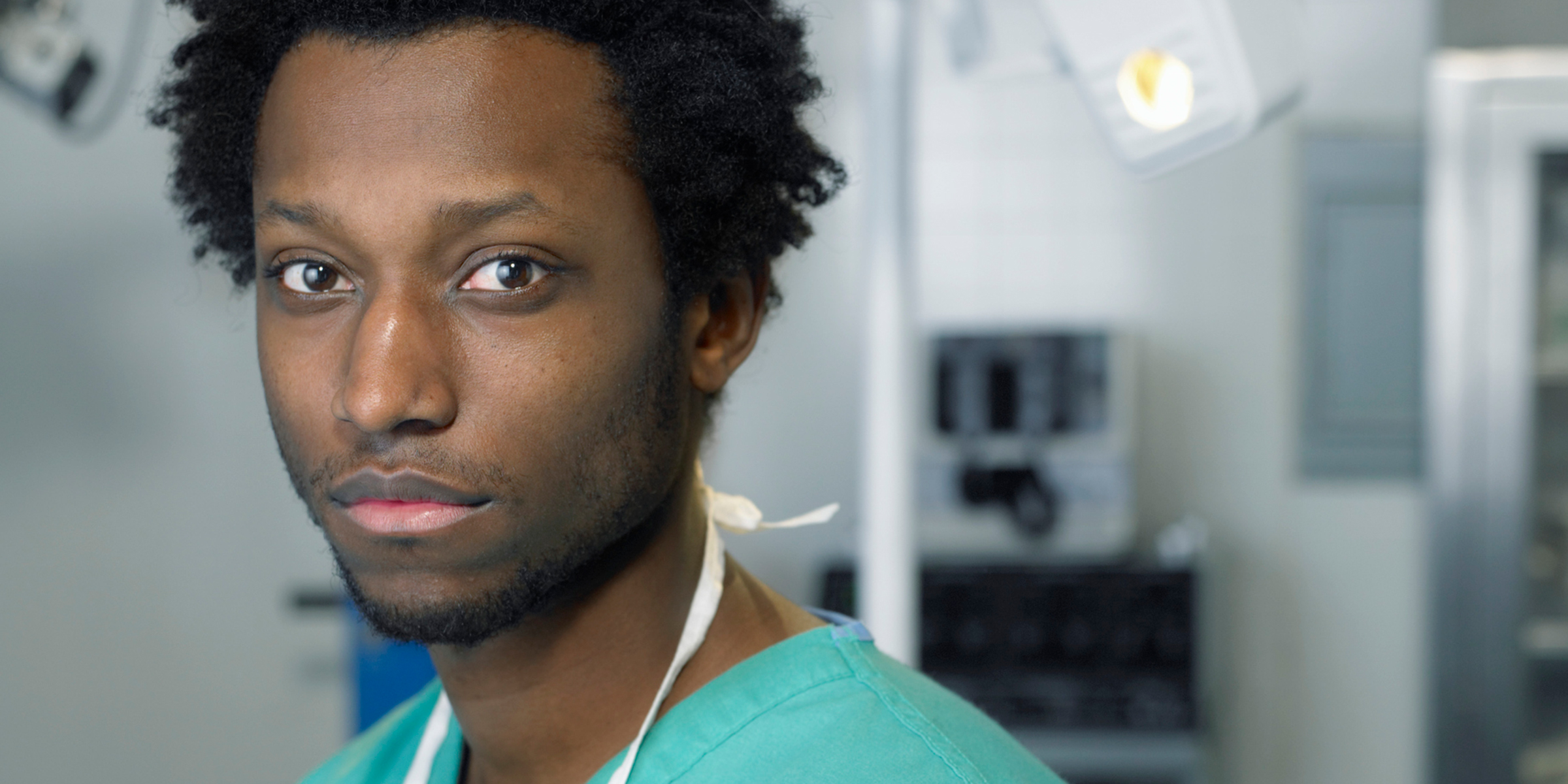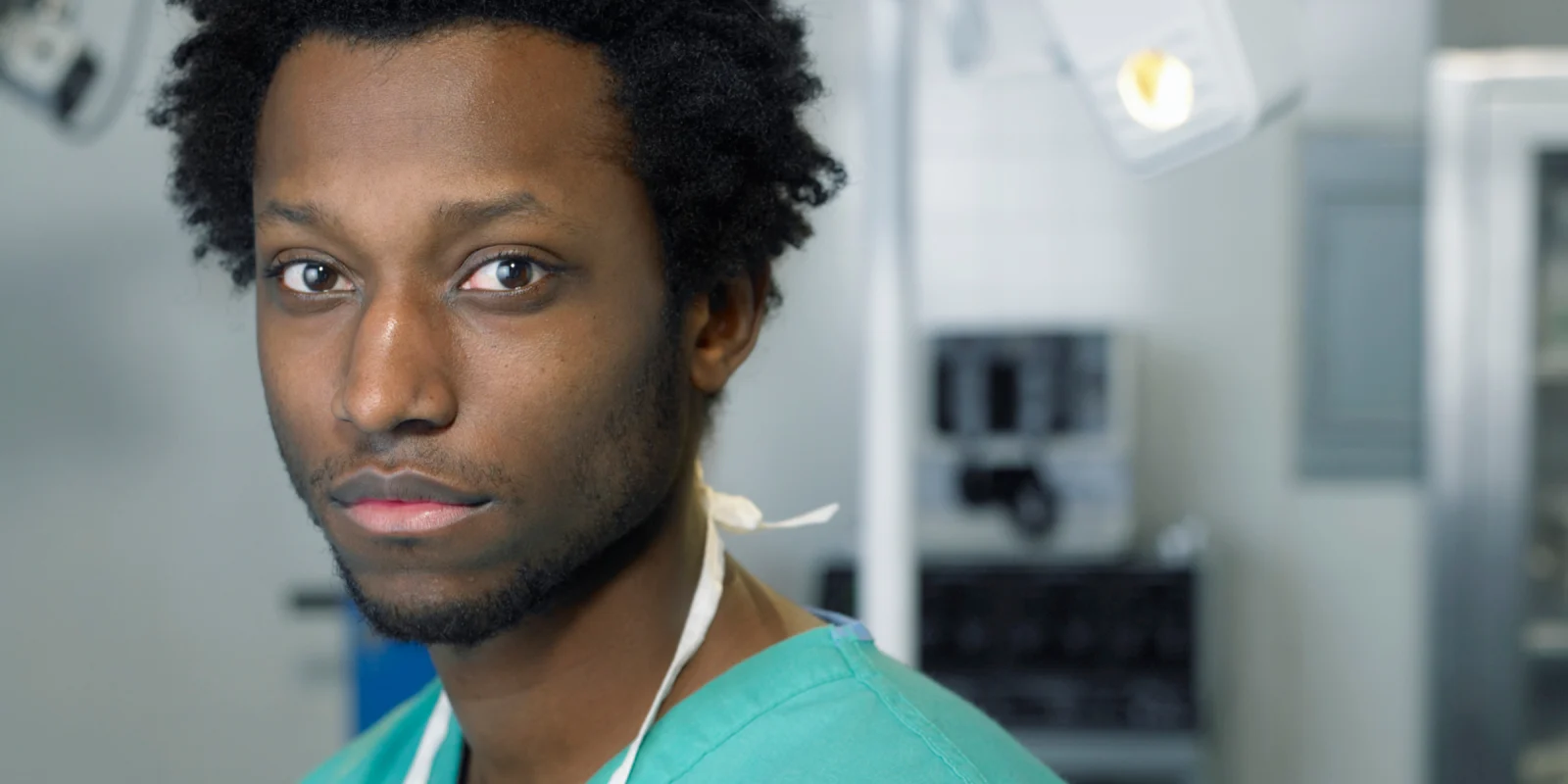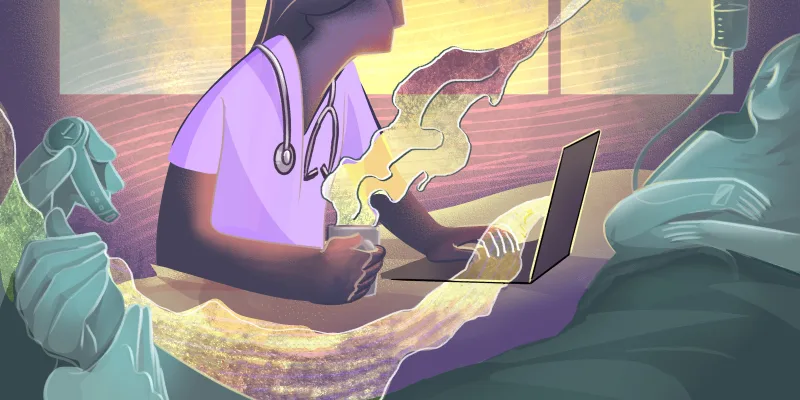
"I had great difficulty trying to summarize my experience as a Black medical student. Being a medical trainee is daunting at baseline. Add on a lifetime of nuance and struggle that comes with bearing Black skin and it becomes unfathomable. There are many aspects I could bring to light, but one that keeps reemerging is the relationship Black people have to the institution of medicine itself.
Because medicine exists on a moral high ground, it carries the false perception that it’s infallible. But in reality, the institution of medicine has roots in racism; many of the tools and practices employed today came to be via the exploitation of Black enslaved bodies. Medicine simultaneously centers whiteness as the norm and labels non-whiteness as a biological risk factor for disease. This fallacy is perpetuated despite the fact there’s no biological evidence of race; for race is a social construct used to divide, oppress, and control." — Rachel Ingraham, MS2, Massachusetts
What does it mean to be a Black medical student in the United States in 2020? Black Americans account for 13% of the U.S. population, yet only 6.2% of 2018-2019 medical school graduates were Black. This discrepancy reflects the institutionalized racism that Black students must overcome on their journey to medical school.
Once they arrive at school, the challenges Black medical students face multiply. In medicine Black and other underrepresented minority (URM) students experience micro and macro-aggression throughout their educational career and in various interprofessional relationships. Additionally, due to the low number of URM faculty, Black students are often left without mentors that can empathize and support students through these specific challenges. This external messaging works in tandem with internalized racism and can lead Black students to feel less than their non-Black colleagues. These complexities manifest in imposter syndrome which can further perpetuate feelings of isolation.
We surveyed Black medical students in an effort to have their much needed voices heard. Although the trainees interviewed are from all across the country, their experiences of racism are very similar. This further elucidates the change needed within medical institutions.
What has been the most difficult part of our current times of COVID-19 and state-sanctioned violence against Black people?
"The reactionary outcry to racial injustice despite years of collaboration, suggestions, and calls to action. There is a trend of faux awareness that serves as an escape from white responsibility; it affords white people an avenue to avoid self-reflection and pondering the consequences of their day-to-day actions." — Nkemdi Agwaramgbo, MS3, Alabama
How has being a medical student compounded this difficult experience?
"I think that first and foremost, being a medical student has made me respect how precious life is and how delicate human bodies are. And it's made me respect the profound way that trauma affects people. It is going to take so much work to heal the Black community after this. I think having a perspective on how much trauma breaks down the physical body, not just the emotional and spiritual parts of people, makes it more difficult to go through this time because I know that we will be dealing with its consequences for an entire generation. And sometimes that's difficult to balance with the desperate need for a change and the benefit that would come from no longer subjecting generations to the same treatment and system." — Martine Randolph, MS4, Massachusetts
What support have you received from non-Black medical student peers? What have you found helpful?
"Solidarity. They know how I feel because they too experience it. There is comfort in being able to reflect with these individuals and know that I am not alone." — Anonymous MS4, Mississippi
"Some are being allies and speaking out about the issues surrounding BLM. Many have been quiet." — Ololade Akinfemiwa, MS3, New York
Going forward what types of mechanisms of support do you hope to see from your school?
"We talk about inequality in the delivery of health care services due to implicit bias. We do not talk about police brutality." — Anonymous, Michigan
"Increasing Black faculty, increasing diversity, a vested interest in Black causes." — Nkemdi Agwaramgbo, MS3, Alabama
How and where would you like anti-racism teachings to be integrated into your curriculum; both pre-clinical and clinical years?
"Every time I read about a lesion being "erythematous," I cringe. Racism is so entrenched in medicine that white skin is still the standard upon which we describe basic lesions. Racism is so deeply entrenched in how we are taught as future doctors, that we unwittingly attribute racist ideals onto the most innocent among us — children (Apgar scores). I'm tired." — Anonymous, MS3, New York
"When I enter lecture halls and hospital workrooms, I’m quickly reminded how much whiteness is centered. I think about the structures used to maintain that whiteness and I instinctually hide my voice and try to blend in. I begin to fear my authentic self will make those centered uncomfortable and I further internalize society’s false message, that I’m incapable and truly don’t belong.
Unfortunately, the racism illustrated won’t be solved with performative acts, such as town halls or heartfelt letters. It will take the removal of institutional policies that serve to uphold racism, and the addition of equitable support for Black students and faculty. But most importantly, the elimination of racial inequities requires those not subjected to racism to identify how they have benefited from it, despite the immense discomfort that ensues. Because without ownership over your history and naming your involvement, racism will continue to live on and your Black students and colleagues will forever feel othered." — Rachel Ingraham, MS2, Massachusetts
Rachel Ingraham is a Black woman and medical student at Boston University School of Medicine, who’s passionate about social justice and dismantling racism in the medical system.
Faizah Shareef is POC and a dual-degree MD/MBA student at Boston University School of Medicine, who believes in establishing racial justice and equity in medical education.
Ashely Alker, MD, is an Emergency Medicine physician with a M.S. in Public Health. She is also a health policy advisor, author, and medical media consultant. She can be found on both Twitter (@aalkermd) and Instagram (aalkermd). Ashely is a Doximity 2019-2020 Fellow.



